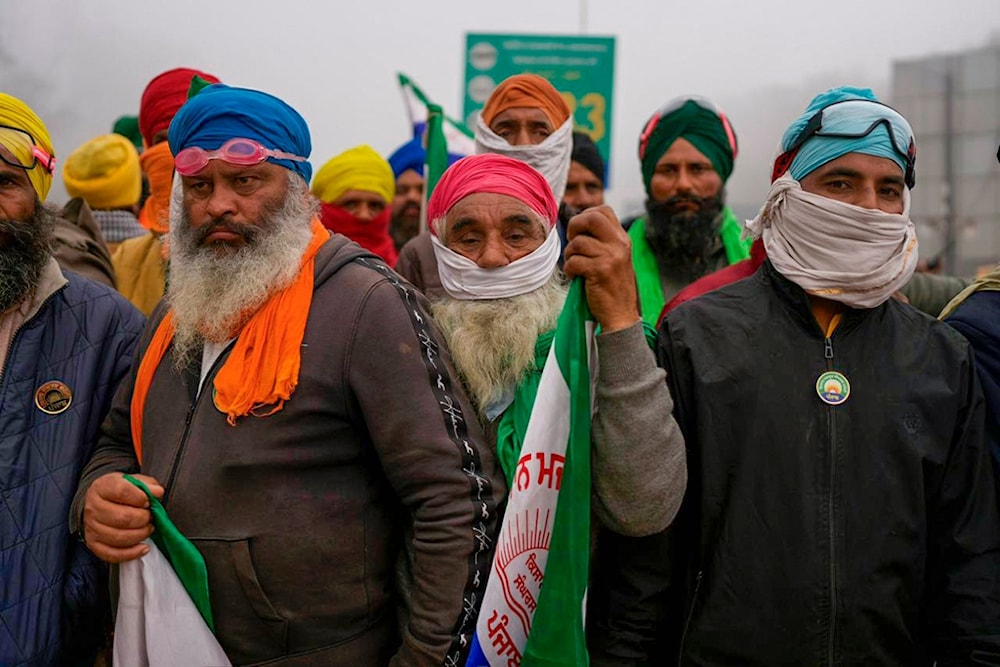Protesting farmers move toward New Delhi as demands are not fulfilled
The Indian government has placed wheat shipment bans, decreasing local prices, lowering profits, and triggering nationwide protests.
-

Indian farmers who have been protesting for a week to demand guaranteed crop prices wait to march to the capital near Shambhu border that divides northern Punjab and Haryana states, India, Wednesday, February 21, 2024. (AP)
Thousands of Indian farmers have mobilized toward New Delhi in protest against the government's failure to increase crop prices.
When New Delhi imposed a ban on wheat shipments as prices skyrocketed due to the war in Ukraine, it sparked international outrage and drove the commodity's price higher.
Farmers and dealers in India are now enraged that they have been denied a profit as local prices have plunged.
Even though India is the world's second-largest wheat grower, the government, which is also the largest buyer of grain, stated that it decided to defend food security for its massive population over inflation worries.
The decision, along with declining global supplies from Russia and Ukraine, two of the world's top five wheat producers, propelled prices to all-time highs on Chicago and European commodity exchanges.
Since then, Indian farmers have organized to pressure the government into re-adopting its agricultural reforms that were abandoned by Prime Minister Narendra Modi and have not stopped since, despite governmental and police efforts to disperse, oppress, and halt all their efforts.
However, farmers are determined to push through against all imposed barriers, be it getting attacked with tear gas, or being faced with metal and concrete blockades. “We assure you that we will break the barriers. Once we break it, we will only stop again in Delhi," farmer Jagmohan Singh, 45, told AFP.
Farmers protests are happening in India too.
— S.L. Kanthan (@Kanthan2030) February 13, 2024
And the Indian government is so hi-tech that it’s using drones to drop tear gas on the protesters.
The world should be celebrating agriculture, but we are run by psycho financial overlords who have never spent a day in a farm. pic.twitter.com/vCVFwohdyN
Demands are clear
Their demands are clear: the establishment of a law that sets a minimum price on crops, including rice and wheat. The plan already exists but should be expanded on, according to the farmers. Moreover, they also demand a waiver of loans and universal pensions for farmers over the age of 60.
Last week, protesters took time off coinciding with governmental negotiations, waiting for an answer to their demands.
The government, however, failed to establish any of them. An establishment of price controls on certain products was proposed, but farmers rejected the prospect. Farm leader Jagjit Singh Dallewal told the Press Trust of India news agency Monday night that the latest government proposal was "not in the interest of farmers."
Hundreds of millions of small farmers in India live on the edge, exposed to the whims of the weather, and those in Punjab were already suffering from crop losses caused by a severe heatwave.
They claim that the price drop reflects the difference between a large payment and heartbreak.
Farmers in India commit suicide because of their inability to pay off debt, earn a proper, sufficient living, and poverty, and the situation has been worsened by the price decreases, which largely decreased profits.

 3 Min Read
3 Min Read








